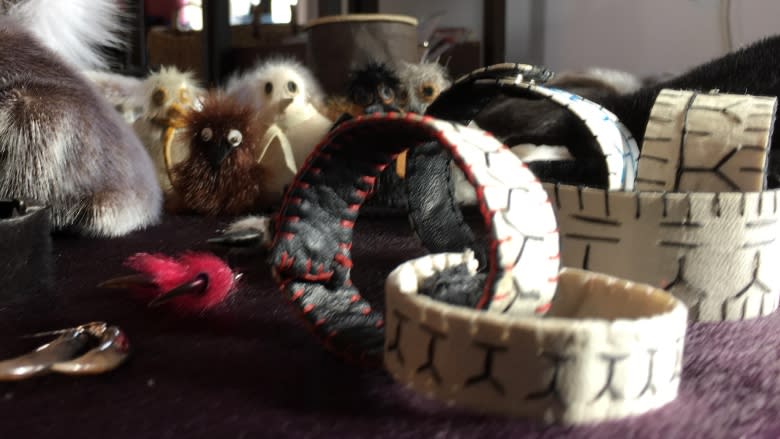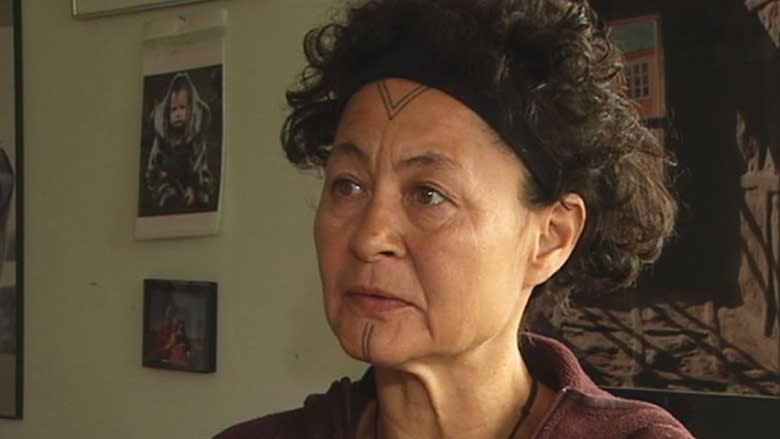Slow climb back for Nunavut's seal export industry after exemption from EU import ban
Nunavut is starting to export seal products to Europe again, but it's a far cry from the thriving industry Inuit used to depend on.
Since August 2015, when the European Union granted an exemption to Nunavut Inuit on its seal import ban, Nunavut has issued 61 export certificates to the EU — valued at $5,723, according to Nunavut's Department of Environment.
Iqaluit designer Rannva Simonsen was issued 32 of those export certificates, selling products to a lone retailer in Paris.
She started off by exporting accessory items like purses, bracelets and children's boots, to ease into the market before getting into the larger items more common to Nunavut, like mitts, vests and jackets.
"The general public [in Europe] is very much against it, mostly, is my feeling still," Simonsen says.
"But there are pockets of people that have specific interests for the Arctic and have understanding of the circumstances here and are very sympathetic and very interested. I believe we have to follow those leads."
Fourteen other export certificates went to another lone buyer who resold products in the United Kingdom, while the Government of Nunavut itself used the remaining 15 to bring samples to seal market access meetings in January.
"It was very positive. They were very impressed to learn about the Nunavut sealing industry," said Corenna Nuyalia, Nunavut's senior advisor for fishing, sealing and fur programs.
"What I found interesting was people we met with had no idea there was an Inuit exemption — or a seal ban — in Europe. They were just kind of surprised."
Education is the key
The latest export numbers are pennies on the dollar for what the market used to be.
Seal pelt prices plummeted with the rise of anti-sealing campaigns and the EU's 2009 import ban, but designers and activists say education on sealing practices in Nunavut is the key to growing the industry.
"It's a start, but it's unfortunate the ban isn't lifted yet," says designer and activist Aaju Peter. She was also a central character in the film Angry Inuk – a Nunavut-made documentary on the seal industry by Iqaluit's Alethea Arnaquq-Baril.
"We need a lot more money for education," she said. "With Angry Inuk we're travelling all over and people want to buy sealskin products. So education is definitely the key."
Simonsen says Angry Inuk has helped with education, but is wary of going too hard too fast on that front in Europe.
"Everybody has gotten better insight from watching it, which is fantastic," Simonsen said.
"I think generally people are interested in opening their eyes to the bigger picture and learning about the circumstances of the seal and how it fits into society here, which is a very important part of selling products to the EU.
"We want to tell where the seal comes from, who caught it, who prepared the skin, who sold it, where the meat went."
'We have to be ready'
Both Simonsen and Peter say they hope to see a day where the price of pelts bounces back. And if that day ever comes, they say Nuanvut has to be ready to meet demand.
"Everybody in Nunavut has about 80 per cent [of] what it takes to make a living from working with skins and arts. That last 20 per cent is quality," Simonsen said.
"Once people understand, they may really want it," she said, "and then we have to be ready."




